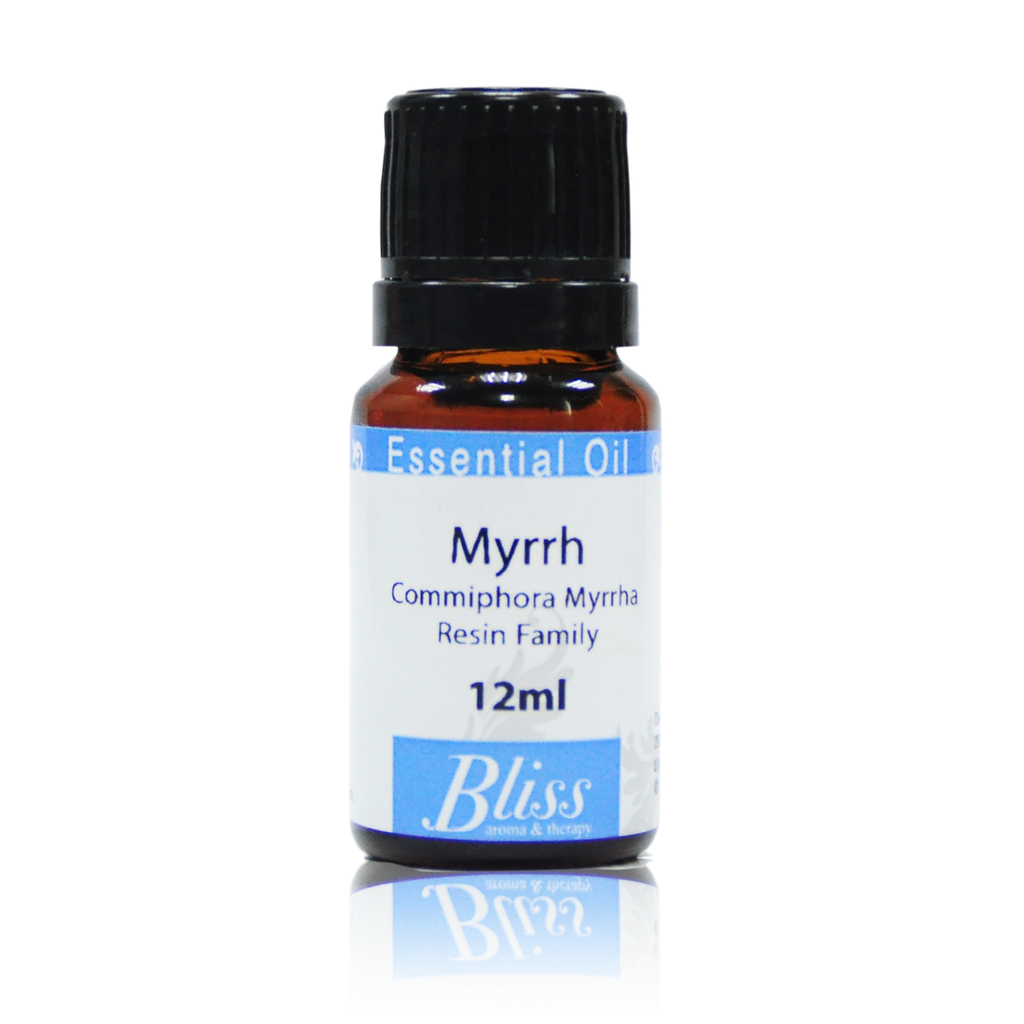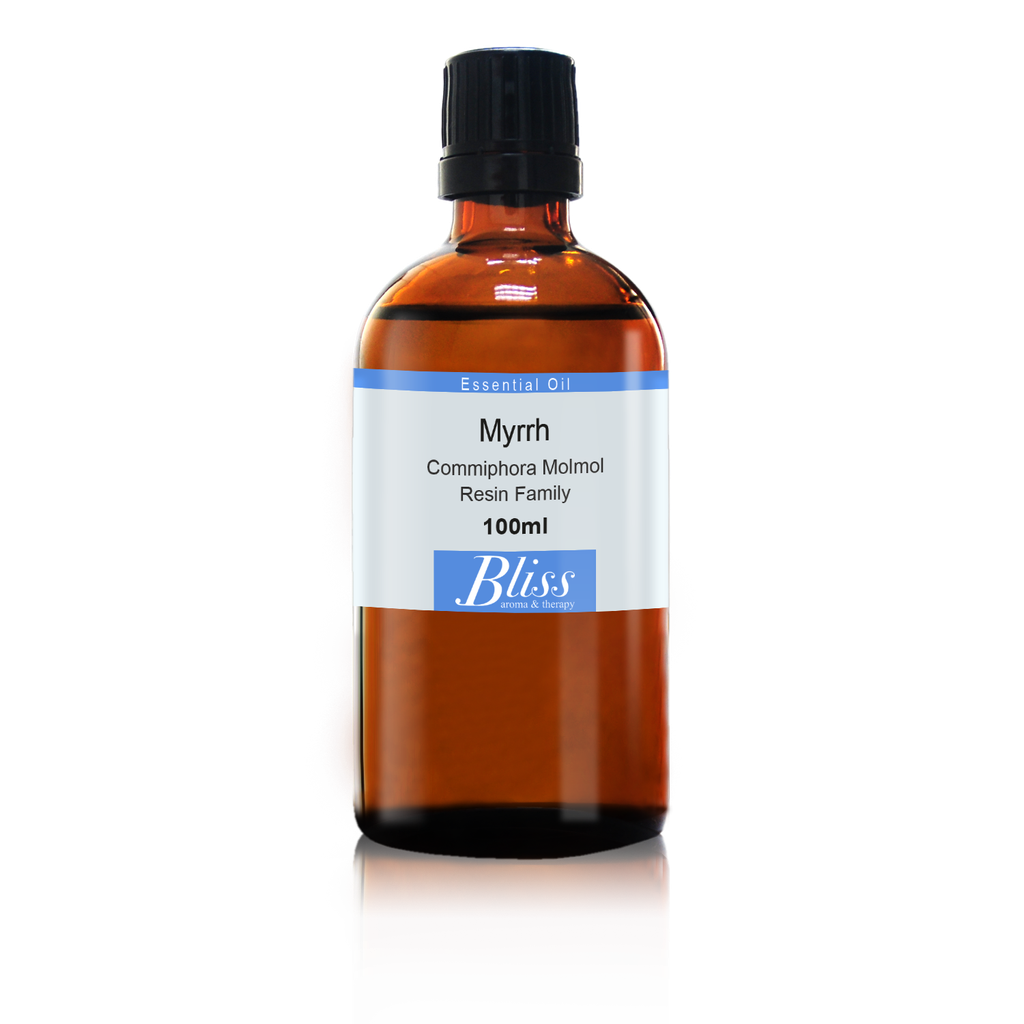Myrrh
Botanical ID
Commiphora Molmol
Plant part used
Gum or Resin
Place of origin
Middle East & Africa
Description
The tree produces few leaves on its jagged and angled branches. At the end of summer, it produces orange-red flowers and knots. From these knots, the tree produces a clear or pale-yellow sap – also called Myrrh Gum.
Characteristics
Its aroma is warm, dry, musty, woody, herbaceous, and smoky.
Method of extraction
Solvent extraction.
General
Myrrh resin has been used throughout history as a perfume, incense, and medicine.
Blends well with
Frankincense, Sandalwood, Clove, Lavender, Eucalyptus & Jasmine.
Indications
Mind & Spirit – reduce tension and negative moods, which in turn supports emotional and physical well-being.
Body – Main benefits to the body are for respiratory conditions by soothing cough and cold symptoms (inhalation).
Skin & Hair – may be used directly on skin ailments including sores, acne, and skin that is chapped or generally afflicted with dryness.


